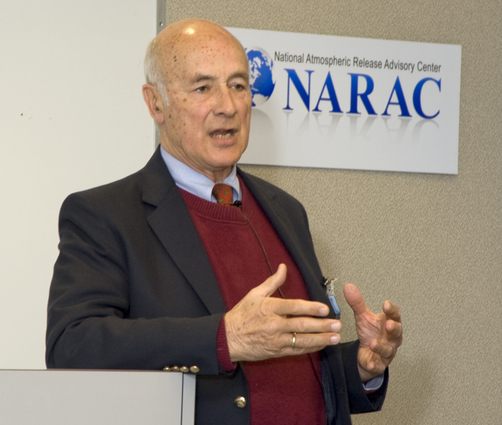The future of power
 (Download Image)
Joseph Nye Photo by Nancy Rutter/TID
(Download Image)
Joseph Nye Photo by Nancy Rutter/TID
Nye has had a significant influence, stretching over more than 40 years, on how the U.S. thinks about foreign policy. He is a distinguished service professor at Harvard University and former dean of Harvard's Kennedy School of Government. He served as under secretary of State for Nonproliferation under President Carter and as chairman of the National Intelligence Council and assistant secretary of Defense for International Security Affairs in the Clinton administration.
According to Nye, power is "simply the ability to affect others to get the outcome you want." There are three kinds of power: coercion (military might), payments (foreign assistance) and persuasion. The first two are considered "hard power," the third "soft power." And the appropriate use of both hard and soft power yields "smart power," which has been the watchword of Secretary of State Hillary Rodham Clinton.
Two major power shifts are occurring in the 21st century. The first shift is the transition of power from West to East. In the 1800s, Asia held half of the world's population and half of the world's resources. In the 1900s, as a result of the Industrial Revolution in Europe and the U.S., Asia still held half the population but only one-fifth the resources. Now, in the 2000s, things are shifting back toward Asia.
Nye emphasized that this shift isn't so much a decline of the West but a result of the rapid economic growth of China and India. "The center of the world's economy has shifted from the middle of the Atlantic Ocean in the 20th century to the middle of the Pacific Ocean in the 21st century." Despite this shift, he did not think the U.S. is in any serious danger of being overtaken by China. "Total size of economy is one thing, but per capita income is the better measure of the wealth of a country.
China is not close to the U.S. in per capita income....The U.S. has decades before China would pass us in economic productivity, and this gives us time to work out a partnership."
The second shift is power diffusion from states and governments to non-state actors and individuals. Nye attributes this shift to the widespread availability of information technology. It was possible to communicate and obtain imagery worldwide in the 1960s, but it was so costly that only governments could afford the capabilities. Now, with the Internet and e-mail, Skype and Google Earth almost anyone can do it. As the Internet and mobile devices become widely available, power diffuses.
"Take Egypt as an example. Previously, you had the government, military and the Muslim Brotherhood as the main players. Now you have people in Tahrir Square. You don't have democracy, but you do have a much more complex situation....This doesn't mean that governments are obsolete. They're still critically important, but the stage on which they play is now very crowded."
Given this global landscape, Nye asserts that the U.S. needs to think more broadly about how to use power and exploit "smart power." Many issues are difficult to work state-to-state but can be addressed at more diffuse levels.
"Think of a three-dimensional chessboard. On the top board, you have state-to-state issues, like military power. On the middle board are multipolar issues, like economics. And on the bottom board are transnational issues, like climate change and pandemic -- issues that can't be solved by governments alone, that can only be addressed via soft power and relationships....We have to think about power in a different way. Not so much power over others as power with others."
According to Nye, this will require a much more sophisticated approach to power, with policies designed to deal with multidimensional complexity. The different components of power will have to be integrated. "Soft power, in order to be effective, requires military power behind it. And you don't want to use military power without first thinking about the whole picture including the 'soft' aspects." He cited Libya and Iraq as examples of successful and not-so-successful uses of "smart power."
A lively question-and-answer session followed Nye's prepared remarks. Nye referred people to his most recent book, "The Future of Power" (2011), for a more thorough discussion of the topic.
Contact
Lauren Y Devore[email protected]
925-422-0855
Tags
Physical and Life SciencesEnergy
Featured Articles







